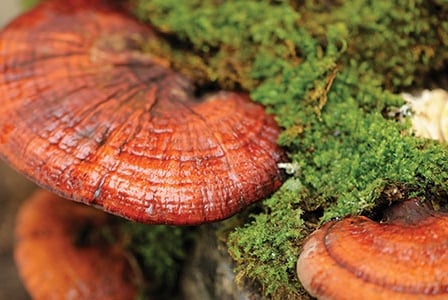
Steer clear of illness this cold and flu season by using natural remedies that these holistic health experts recommend.
Watch out, cold and flu bugs. The wealth of effective remedies offered by natural medicine should scare disease-causing pathogens. We caught up with four health experts representing naturopathic medicine, traditional Chinese medicine, herbalism, and homeopathy, and asked them to share some immune-boosting tips.
Naturopathic medicine for cold and flu
Who
Elvis Ali, ND, of Scarborough, Ontario, has been in practice for almost 30 years. He completed studies on mind-body medicine at Harvard Medical School. He has published papers, serves on alive’s Editorial Advisory Board, and has written and co-authored several books.
Philosophy of care
“When one has a cold or develops an illness, the body is trying to heal itself. For a cold and flu, this is a sign of immune problems. One has to ascertain the cause(s) of the illness and get a proper diagnosis before treatment,” says Ali.
Treatment plan
At his clinic, Ali considers symptoms and, if needed, bloodwork results. He rules out a bacterial infection and the need for antibiotics. If the infection is bacterial, probiotics are recommended if the patient is taking antibiotics.
Ali emphasizes prevention: “Before a patient gets ill, why don’t you help boost the immune system?” He recommends five things to keep people healthy: multivitamin/minerals, probiotics, omega-3 essential fatty acids, and vitamins D and C.
He also suggests avoiding sweetened foods, which may suppress immunity, as well as dairy and fried foods to prevent mucus formation; conversely, spicy foods containing cayenne, curry, garlic, ginger, and curcumin support immunity, digestion, and energy.
“Hydrotherapy is very good for increasing circulation. That’s what you want to do when your body is run down,” he adds. His advice: fill one footbath with hot water and a second with water and ice cubes. Put both feet in the hot bath for 30 seconds, then into the ice-cube bath for 30 seconds. Repeat three times, always finishing with cold.
Traditional Chinese medicine (TCM)
Who
Melissa Carr, Dr.TCM, achieved a bachelor’s degree in human kinetics, followed by research at the Ehime University School of Medicine in Japan and further training at the International College of Traditional Chinese Medicine of Vancouver. She practises at the Connect Health Centre for Integrative Medicine in Vancouver and is a member of alive’s Editorial Advisory Board.
Philosophy of care
In TCM, generally, “we look at the main organ system of the lungs when we’re dealing with immunity,” says Carr. “We call the lung the ‘delicate organ’ because it’s most exposed to the exterior. Most [infectious] start in the nose and throat, and go into the chest.”
To keep “lung energy” strong, Carr generally recommends breathing exercises and getting enough sleep. Scarves are considered a health accessory in TCM and are used to prevent cold and wind from hitting the neck area.
Fall is when lung energy is prevalent; however, Carr notes that any time there is a shift in energy, it brings increased vulnerability. If there are other underlying health weaknesses or conditions, they can affect immunity as well.
Treatment plan
TCM practitioners look at patterns of symptoms, and treatment varies based on a patient’s individual diagnosis. “In Chinese medicine, it’s the ‘wind’ element that carries pathogens—viruses and bacteria—into the body,” says Carr.
Different types of “wind” colds have symptoms including headache, runny nose, an achy body, a sore and scratchy throat, dry cough, and sometimes a bit of a fever.
In terms of herbs, astragalus, considered an energy booster, has made it into the mainstream natural health world. Other TCM combination formulas, many including mushrooms, possess antiviral effects. Ban lan gen and jade windscreen are classic herbal formulas.
“Usually treatment is fairly short. If a patient gets sick a lot, then we need to boost immunity and work on the foundation,” says Carr.
Herbal cold and flu fighters
Who
Ranvir Pahwa, PhD, is a clinical herbalist, Ayurvedic practitioner, homeopath, holistic nutritionist, acupuncturist, and toxicologist. Founder of the Ayurveda Science Centre, he’s currently writing a couple of books and maintaining a practice in Saskatoon, Saskatchewan.
Philosophy of care
“My first love is herbalism; I’m a botanist,” says Pahwa. Accordingly, he has an international herbology approach in his practice, embracing Western, Chinese, Ayurvedic, and South American influences.
Treatment plan
In addition to considering a patient’s symptoms, as well as the presence of congestion and/or secondary infections, he considers herbal and personal energetics.
Immune-enhancing treatments to consider are astragalus, elderberry extract, goldenseal, reishi mushroom, basil, neem, American ginseng, oil of oregano, grapefruit seed extract, clove, and guduchi (a traditional Ayurvedic formula).
Although herbs often have more than one action in the body, he sometimes suggests a combination of herbs. As a gargle or throat spray, he often recommends echinacea with goldenseal, the latter herb offering a tonifying effect on the mucous membranes.
Amla is East Indian gooseberry, loaded with vitamin C and good for cold and flu prevention. “We use it at home,” says Pahwa. “I have every herb in my home.”
Homeopathy for health
Who
Nicole Duelli, classical homeopath, studied in Germany, where she received certifications in naturopathic medicine and homeopathy. She has been practising in Vancouver since 1995, acts as a member of alive’s Editorial Advisory Board, and is a lecturer at the Canadian School of Natural Nutrition.
Philosophy of care
“In homeopathy, less is more. It’s like a stimulant or trigger. Homeopathy helps the body’s own healing response, and when that trigger has happened, you stop the remedy and only take if it symptoms start to come back. It’s a very slow, minimal kind of dosing, which is really beautiful,” says Duelli.
Treatment plan
Duelli notes that treatment often starts with a diagnosis, but with homeopathy, the individual symptoms are the guiding principle for choosing a remedy: “We use symptoms to find a remedy that will trigger the body’s self-healing process.
“With a flu, how did it start? What are the symptoms? What makes you feel better or worse? Gelsemium is a common homeopathic flu remedy. Typically, this flu starts slower, with chills up and down the back, and you’re really exhausted. Aching headaches may be present. Fever too.”
“In comparison,” Duelli adds, “another common remedy, Bryonia, might be more effective when the characterizing symptom is aching pain deep in the bones, where the pain is worse moving around and the patient wants to lie still.”
When it comes to colds, Duelli says it’s tricky because there are so many kinds. Nux vomica is great for colds or exhaustion caused by overwork, with symptoms such as a runny nose during the day, congestion at night, sleeplessness, and irritability.
Ferrum phosphoricum is a helpful remedy for people at the beginning of a cold who don’t know what else to take based on symptoms.
Remedies should work fairly quickly, so after three or four doses, Duelli says that you should notice a difference. She typically suggests 30C potency pellets that dissolve under the tongue, as they’re widely available. If after six doses there is no change, it’s time to re-evaluate.
The next time you’re tempted to stock up on typical cough syrup or pain reliever, consider one or more of these alternatives from Mother Nature’s medicine cabinet.
Bug-busting recap
Five key supplements for optimal health are multivitamin/minerals, probiotics, omega-3 essential fatty acids, and vitamins D and C.
Other immune-supportive supplements include elderberry extract, echinacea, goldenseal, basil, neem, American ginseng, and the Ayurvedic formula guduchi.
Homeopathic infection fighters include Gelsemium and Bryonia, while reishi mushroom, astragalus, and TCM combination formulas are also available.



